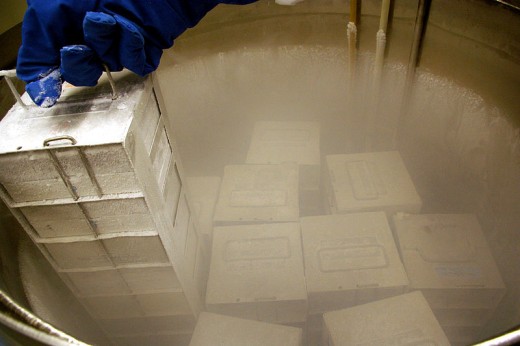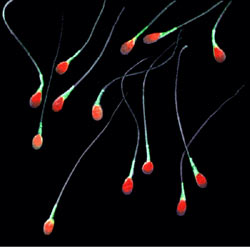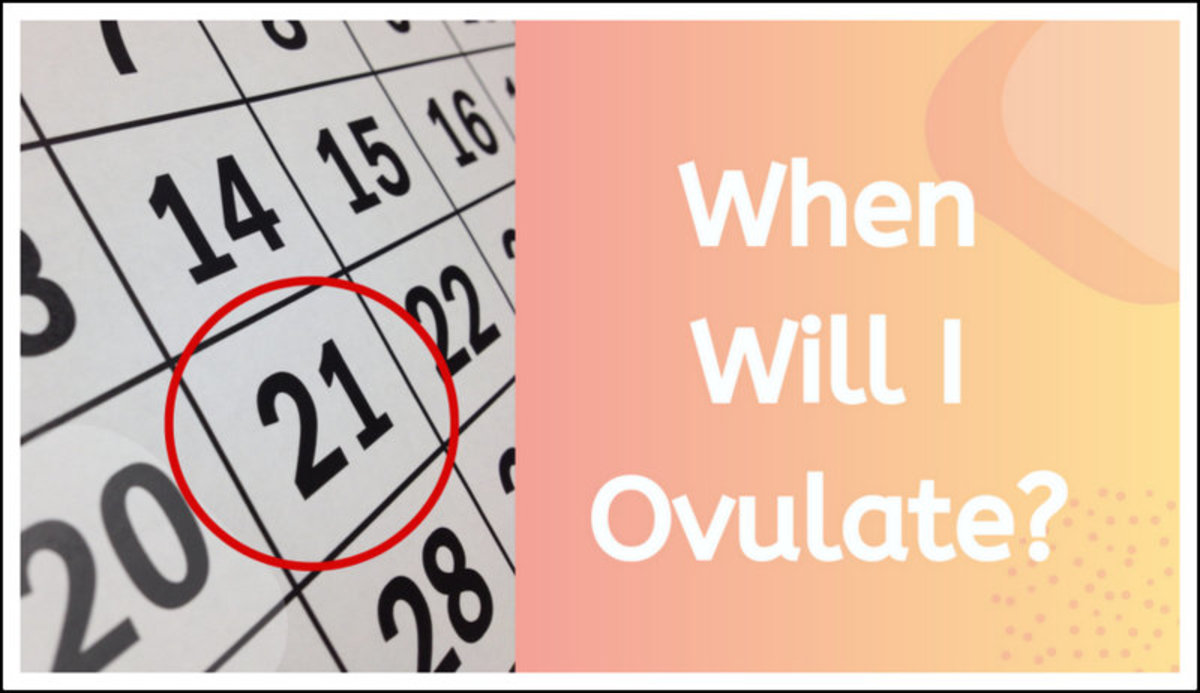Sperm Donation-The Complexities of Contributing DNA to Someone Else's Child

Immediately after college I found myself working for a company that owned two labs- an umbilical cord blood bank, already an article topic of mine, and a sperm bank. The sperm bank has always been a conversation starter but it also brings up a lot of questions surrounding the practice. Previously I wrote a small article about some of the questions that emerged working at an umbilical cord bank but the thoughts surrounding sperm donation are enough to write a book.The practice itself is not the subject on my mind but rather the implications of using a donor for children. Will the distinction between biological and non-biological parents become void in a world where advances in fertility treatment allow people to reproduce who otherwise wouldn’t be able to naturally? Or will there always be a distinction between the two and a desire of these children to seek out their biological parents- even if the parent in question was just earning some extra money at the time by donating their sperm or eggs?
Even though sperm donation and the term sperm bank are often used synonymously the idea of donating versus banking is an important one. Most sperm banks, which don’t come right out and call themselves that instead they use cryogenics or fertility in the official name, have two separate programs, a donation program where eligible donors are paid a fee for their contributions and a banking system in which men pay to have their sperm cryogenically frozen and stored with the company for potential later use. Some common reasons for banking is if a man is going to undergo chemotherapy or radiation as it may render him infertile and hazardous jobs not limited to but certainly including those in the military. In the case of donation, often times the donors are college-aged young men including those in graduate school or starting out in their careers. I think it is fair to say most donors are inclined to sign up as a way to earn some extra money while they are young, which is not to say some don’t realize the opportunity their donation is providing to those in need. Of course I am sure there are donors doing it purely for the sake of donating. But as far as my experience was during my brief time working at a sperm bank, most donors were doing it to make money. A number of different clients use the donation system with reasons ranging from male-female couples with fertility problems, female-female couples looking to have children, and single woman looking to have children on their own.

My questions about the overall process start with the donors themselves. As I said it was my experience while working at a cryogenics facility most of the donors were young men in their early 20s wishing to make some extra money while in college. I wondered how many of them truly grasped the ramifications of their money-making endeavor. Certainly young women can find themselves in the same situation, as egg donation is also a money-making endeavor, although it is certainly a more difficult procedure for women. One day, later in their lives, does it occur to these people that they very well may have several children out there who are biologically theirs? At most sperm banks the donors have the option of supplying any potential children with their contact information or they can opt to donate anonymous. In the first scenario if the donor’s sperm is selected and used, the child has the option of getting in touch with the donor once they reach a certain age, generally 18-years-old.

A lot of new territory is being covered in courtrooms and ethics debates pertaining to this new world, where biological contribution to children is varied. For a number of socioeconomic and health reasons, as discussed in a previous article of mine, fertility problems are everywhere now. Many couples go through the long, complex, and difficult process of fertility services and some find themselves requiring another source for either their sperm or egg contribution to create an embryo. In this day in age people can have help in a variety of different ways in order to get pregnant. Does this put less of an emphasis on a child’s biological parents? It’s the nature vs. nurture argument which pops up often in scientific debate, but who is really the parent- the person whose DNA contributes to the genetic make-up of the child, or the person who has raised the child from birth? Being the biological child of my parents, I cannot speculate how children in this situation feel. Likewise I do not have any child and again cannot speculate on how parents and donors in this situation feel.
Often, it seems when children are adopted they wish to seek out their biological parents wanting to know more about them but also to ask questions as to why the parent(s) decided to give the child up for adoption. Some of this isn’t relevant in the donation situation but I would guess there is still a feeling of connectedness associated and some of these children would want to reach out to their biological donor. I can’t help but wonder about the dangers associated with this reaching out though. In the case of adopted children or children of divorce often times the thing that stings is the sense the parents have moved on, started a new life, and have other children. In the case of the donation, many donors would be caught off guard if a child opted to get in touch with them. Does the donor have any obligation to make time for the child, bringing them into their life? It may be that a 20-year-old college student selects the ‘open donation’ box on their application without fully realizing the effects 20 years down the line. If the person then has no desire to connect with these children can we really blame them? And what does that mean for the child in question, will they feel a sense of rejection or will they understand the person saw the donating process solely as a source of income? For medical reasons, I think having the donor contact information could be important. But those reasons aside I don’t know if there is any benefit to seeking out a donor, they are just that- a donor. The law does not see them as the legal parent of the child, in this situation the parents raising the child are the legal parents even if only one contributes DNA to the embryo. Is it just better to keep it anonymous?
Some other interesting avenues of this biological endeavor have been represented in movies and television shows- often episodic crime shows like Law & Order and CSI. Scenarios such as a custody battle of sorts over banked sperm when couples divorce and another when the banker dies and the sperm still remains. Will the woman opt to have her deceased husband’s DNA be used for a child? Would it be a tribute to the loved one, a daily reminder of them or would it be a cruel reminder of the husband who isn’t there to watch his child grow? Another, in my opinion odd, trend that has occurred and is noted on several sperm banks’ websites is when a male family member becomes the known donor for a brother or son. Is this odd because it means the biological father to a child would also be the grandfather or uncle? Or is this the future? When you think about it two brothers share a lot in terms of their DNA, so once the semantics and superficiality of it are set aside does having a brother contribute instead of an anonymous donor make the most sense?
Another layer of this conversation is the idea of siblings. There are some limitations on how many vials of a particular donor that can be sold, but ultimately it is a business. If one particular donor’s picture and personal profile are popular among clients then the company will use it for as many clients as the law allows. Ultimately, the donor’s contribution could potentially give rise to many different children, who will technically be half-siblings with one another. California Cryobank mentions on their website an optional ‘Sibling Registry’ which allows clients to add to the registry if they had children and with which donor. (More than likely the donor is question is referenced with a unique identifier, like a number, the donor’s name and information would not be listed.) In this case the families who share a donor have the option of getting in touch with other families with half-siblings and connecting. Again is this connection between half-siblings relevant in the future world of reproductive science? Sure these half-siblings will share half of their DNA, but their other half is from two completely separate individuals who will raise them in, more than likely, completely different environments.
This article, overall, represents my personal views and questions regarding the practice of sperm and egg donation in the fertility process. I certainly think it is a wonderful means for people to have children who otherwise would not be able to. That being said it certainly does bring up interesting points- does the donor really grasp what they are doing? Does it make sense for family members to donate to other family members? What should the relationship, if any, be between donor/child and half-siblings with a donor in common? These are my initial questions but I could go on and perhaps I will, in another article at a later date. There are a lot more thought-provoking questions to be looked into along with interesting scenarios that come up in this field.
Related Hubs
- Sperm Donor to Pay Child Support in Kansas
A look into the Kansas case making headlines- a Sperm Donor is being called to court to pay for the child's medical insurance.








